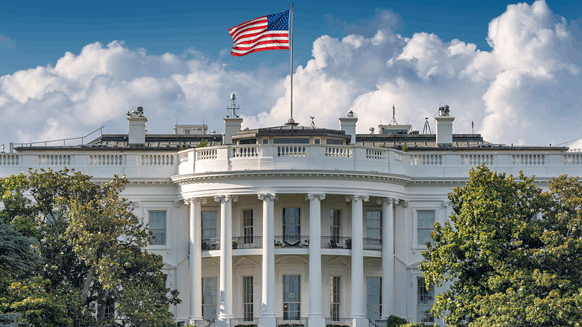The U.S. Department of the Treasury and the Internal Revenue Service (IRS) have published proposed rules and frequently asked questions about the wage and learning requirements under the Inflation Reduction Act (IRA), with the goal of encouraging good pay for clean energy jobs.
Most IRA incentives involve prevailing wage and apprenticeship requirements recorded under the law, the Treasury noted in a press release. These incentives include the Production Tax Credit, the Investment Tax Credit, and the Carbon Oxide Sequestration and Clean Hydrogen Credits.
The proposed rules would provide employers and workers with more clarity and guidance on proposed IRS guardrails, incentivize employers to adopt worker-centric practices and ensure that compliance is streamlined, according to the release. The proposed rules would also provide incentives to ratepayers to “use project labor agreements that meet certain criteria to meet prevailing wage and apprenticeship requirements, allowing this well-established tool to be used more widely in the clean energy industry “, says the statement. .
In addition, the proposed rules contain guidance on “how to correct noncompliance to meet the requirements and justify compliance to ensure workers are well paid and expand the clean energy workforce,” according to the release.
To be eligible for increased credits or deductions for certain clean energy tax incentives, taxpayers generally must “pay laborers and mechanics employed in the construction, alteration or repair not less than the applicable prevailing wage rates” and “ employ registered apprenticeship program trainees for a specified number of hours,” according to an update on the IRS website about the IRA. The update also states that by meeting the prevailing wage and learning requirements under the IRA, taxpayers can increase the base amounts of these incentives by five times.
“President Biden’s Investing in America agenda is focused on ensuring that we’re creating good-paying jobs and expanded opportunities, and that American workers have the skills they need to get ahead,” said Secretary of Treasury, Janet Yellen. “The Inflation Reduction Act is spurring historic investments in clean energy across the country, and today’s announcement will ensure we have skilled workers ready to take advantage of the jobs that are being created.”
“Today, we are proud to announce that the Biden-Harris administration’s focus on putting workers at the center of its economic agenda extends to incentivizing good jobs for workers in our tax system,” he said Acting Labor Secretary Julie Su. “These policies will increase learning in the clean energy economy, and prevailing wage requirements will ensure that more people doing this work receive the fair wages they deserve. This will create opportunities for workers to thrive in a critical industry while achieve the president’s climate goals and secure our energy future.”
“Ensuring that clean energy jobs are good jobs is central to the President’s Bidenomics vision to grow the economy from the middle out and the bottom up,” said John Podesta, White House Senior Advisor for Clean Energy Innovation and Implementation. “Today’s proposed rules show how we can build the clean energy economy and fight the climate crisis in a way that’s good for workers, for communities and for the planet.”
The Treasury Department and the IRS will consider public comments before issuing final rules, according to the release.
To contact the author, send an email to rteodoro.editor@outlook.com


